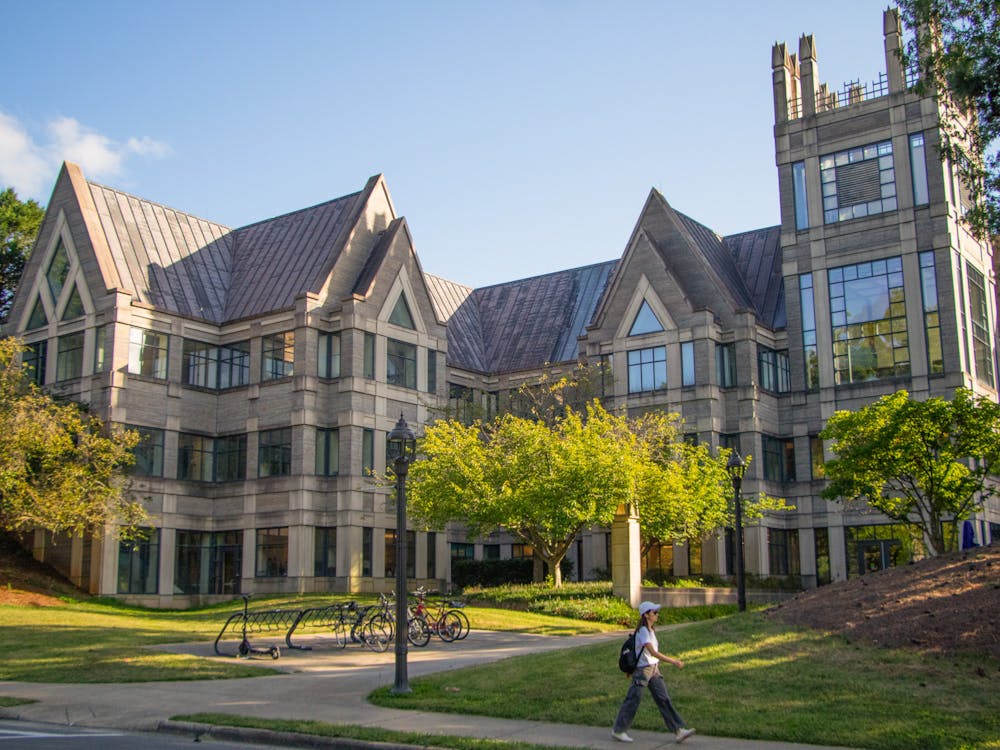The nation has seen an uptick in concerns over political violence in the aftermath of the Jan. 6, 2021, attack on the U.S. Capitol.
A recent joint report from the FBI and Department of Homeland Security identified domestic terrorism by individual offenders as the greatest threat to the United States. Furthermore, studies show that threats against Congress rose tenfold between 2016 and 2021, while others reveal that one in five Americans condone the use of violence to bridge political divisions.
Following the July 13 assassination attempt on former President Donald Trump and a second alleged attempt Sept. 15, many Americans are worried about the potential for increased political violence after this year’s election.
With only a few days until Election Day, The Chronicle interviewed professors in the Sanford School of Public Policy to hear how this trend of increased violence arose and how it could develop post-election.
Bruce Jentleson, William Preston Few distinguished professor of public policy and professor of political science, expressed specific concern about stochastic terrorism — violence driven by hostile public rhetoric — on local levels.
“The data shows no other country has [political violence at the local level] at the extent that we do,” Jentleson said. “… Bricks being thrown through homes, death threats on social media against people … there is a lot more going on.”
Jentleson emphasized the importance of considering current political violence in the context of historical political turmoil in the U.S.
He described Trump as “both cause and effect” of the current stochastic terrorism landscape. According to Jentleson, past instances of violence that “precede [Trump] in some ways fit into his rise, and then he has really taken it further.”
Ever since Trump’s entrance into the political sphere, Jentleson noted that political violence has been “very much coming from one side and not the other.”
A July report noted that terrorist attacks in the United States have rapidly increased since 2016, many of which have been linked to right-wing ideologies like “anti-abortion” and “anti-inclusivity” views.
“Political violence has been part of our political traditions, more than we want to recognize, and because of the influence of a leader like Donald Trump, we've never before had a leader at that level of politics that has encouraged and tried to legitimize violence,” he said. “… He has unquestionably added to it [and] made it more dangerous.”
According to a 2022 study by a political scientist at The Pennsylvania State University, increased acceptance of political violence accompanies heightened partisanship, which is in turn linked to a 34% greater likelihood of political violence.
The situation in the U.S. mirrors a rising global trend of far-right conservatism, anti-immigrant populism and political violence in other Western democracies. Yet, Jentleson still believes that the severity of political violence in the U.S. is at an unmatched severity compared to similar right-wing movements.
Stephen Buckley, Eugene C. Patterson professor of the practice of journalism and public policy, expressed surprise at how quickly political violence moves through the news cycle nowadays.
“When you look at or think about the second assassination attempt on former President Trump, that was in the news and fell away in maybe 48 hours,” Buckley said. “It did not seem to hold our attention the way you would think an assassination would.”
He pointed to distrust in the media as another factor contributing to a hostile political landscape, which is often intensified by misinformation propagated on social media platforms and echo chambers caused by intense partisanship.
According to Buckley, the role of the media has long been one of transparency, allowing flaws in the governmental system to be “hashed out” in a public manner. But this rise in distrust from the public makes it harder for reporters to “play the role of honest broker … of sociocultural referee.”
“The erosion of trust in the news media means that it's incredibly difficult for us to work through some of the thorniest, most complicated issues in our society,” he said. “… This place where we have historically been able to sort of wrestle with difficult issues feels like a place where the ground is no longer secure.”
Ultimately, Jentleson believes that civil discourse is a responsibility that comes with the rights of being a citizen and that the collective will of the nation must adhere to this philosophy.
“I believe our moral obligation is to preserve peaceful democracy, no matter how strong our views,” said Jentleson. “I don’t believe that the ends justify the means for political violence.”
Get The Chronicle straight to your inbox
Signup for our weekly newsletter. Cancel at any time.

